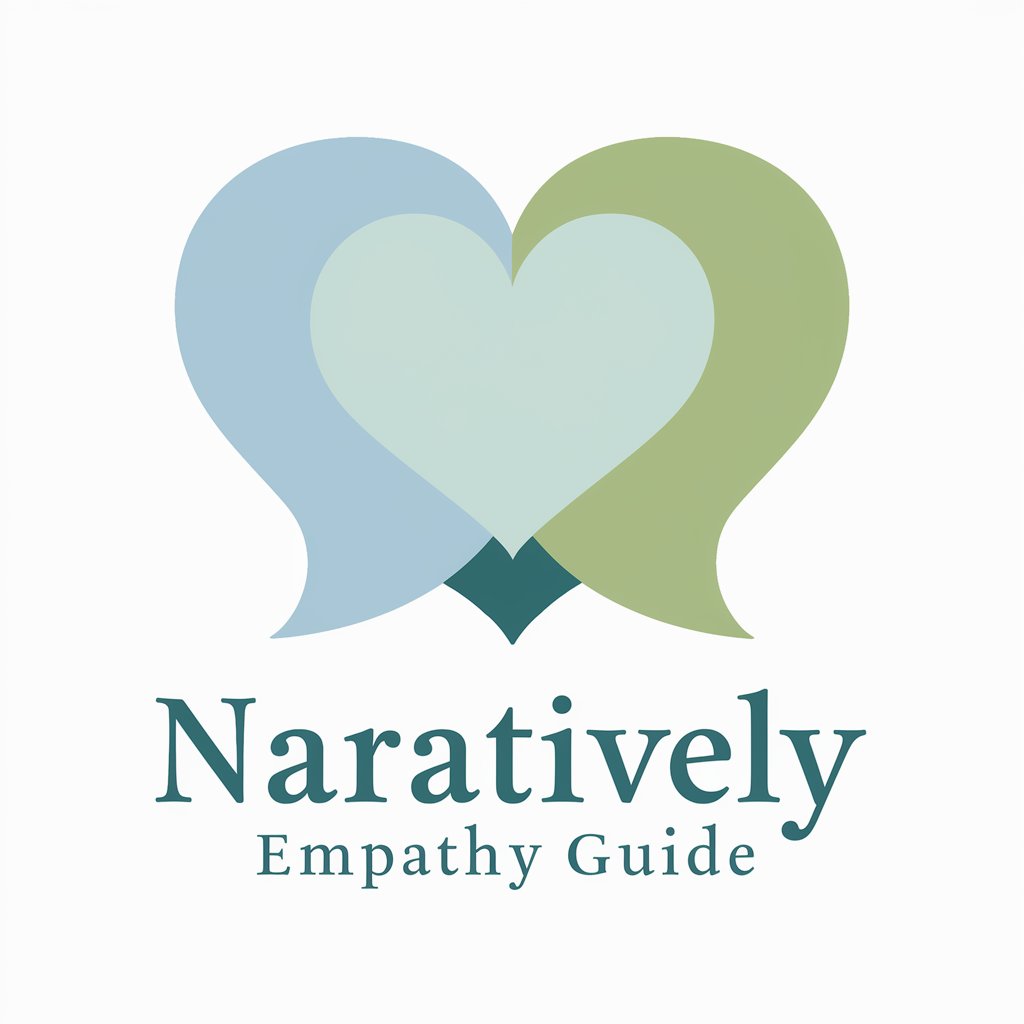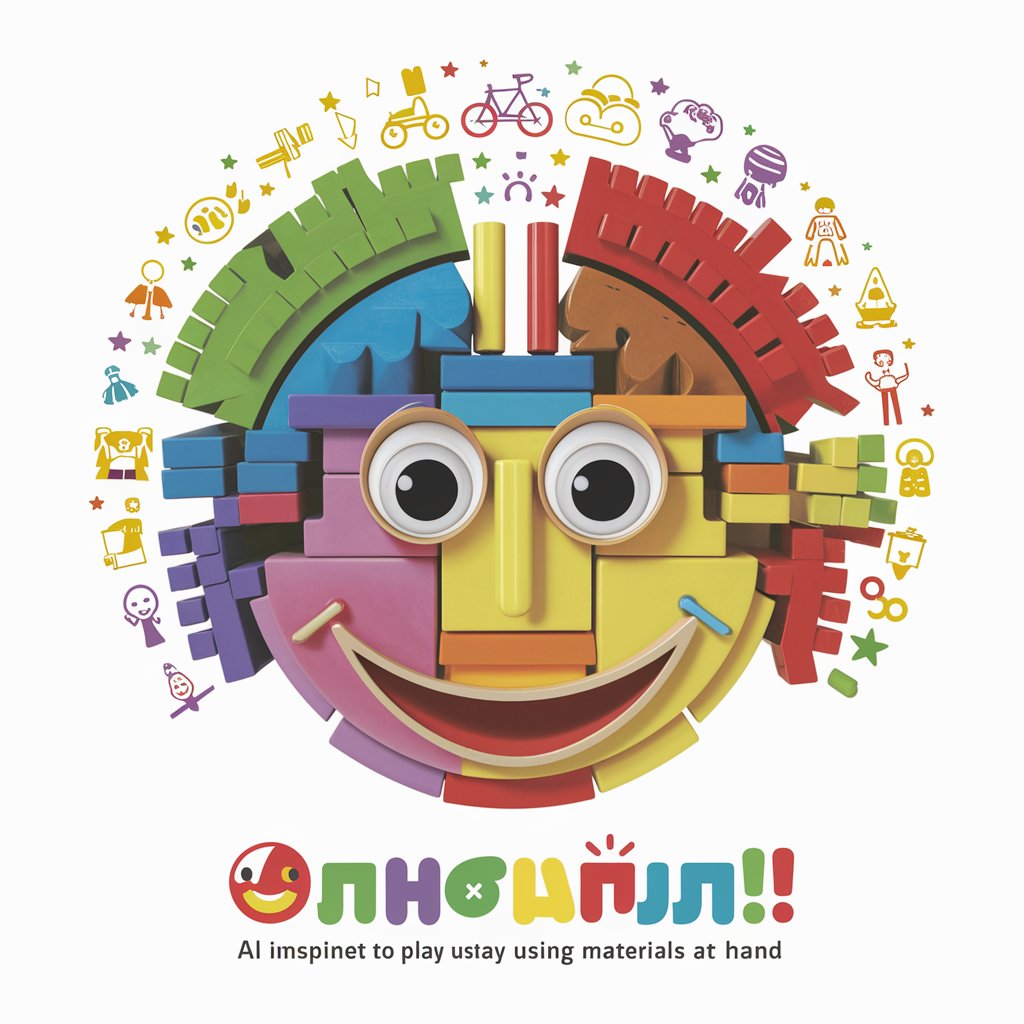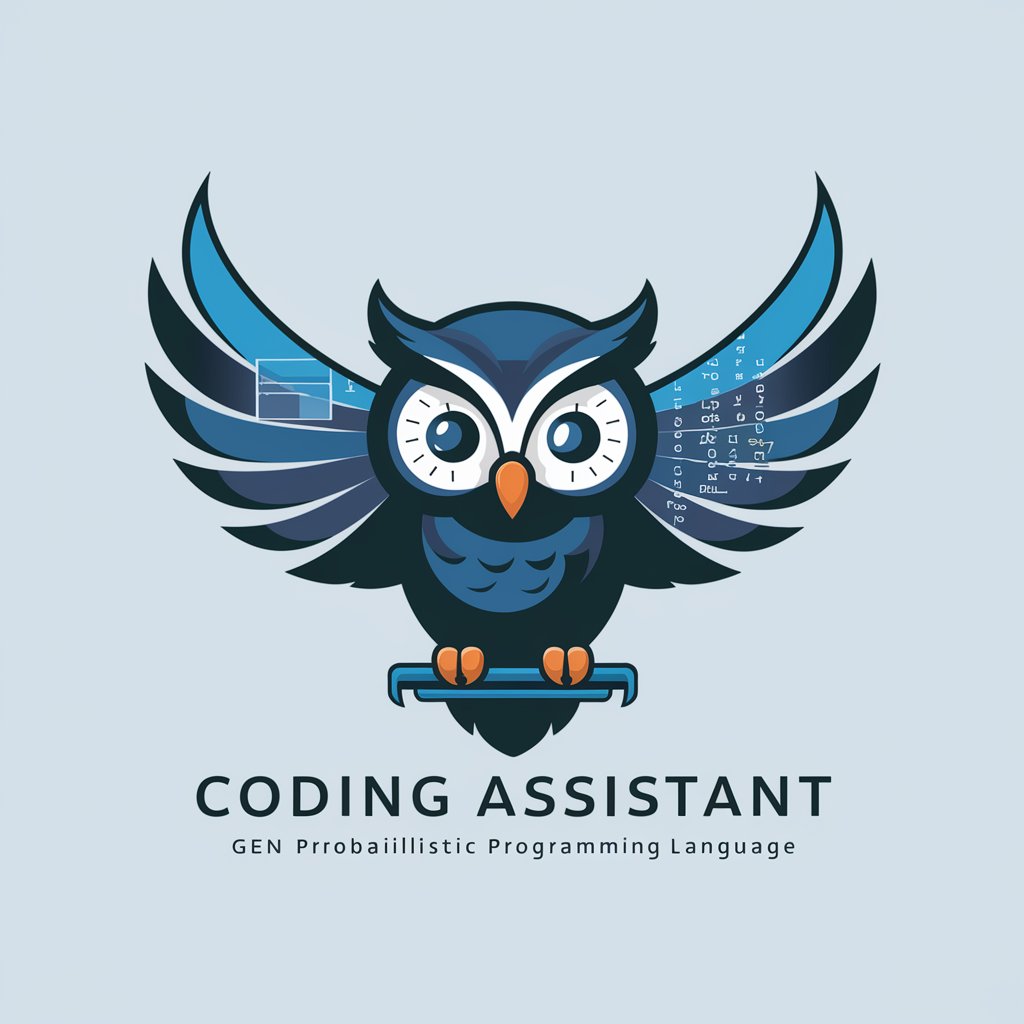Naratively Empathy Guide - Empathy Communication Tool

Hello! I'm here to help you learn about empathy and nonviolent communication.
Empowering Empathy Through AI
Can you explain how to express feelings in a nonviolent way when...
What are some simple steps to identify someone's needs when...
How can I make a request without sounding demanding when...
Could you share a story about resolving a conflict using NVC when...
Get Embed Code
Understanding Naratively Empathy Guide
Naratively Empathy Guide is designed to simplify the principles of Nonviolent Communication (NVC) into easy-to-understand concepts for everyone. The core of its functionality revolves around teaching users how to express and understand needs, feelings, observations, and requests in a compassionate manner. Through the use of simple stories, examples, and everyday language, it aims to foster empathy and improve communication in various personal and professional relationships. For instance, if someone is struggling to express their feelings to a friend, Naratively Empathy Guide could provide an example of how to convey those feelings in a clear, non-judgmental way, focusing on personal needs and how to make a respectful request for change. Powered by ChatGPT-4o。

Core Functions of Naratively Empathy Guide
Teaching NVC Basics
Example
Explaining the four components of NVC (observations, feelings, needs, and requests) using relatable scenarios.
Scenario
A person learns to express a difficult situation at work without blaming colleagues, focusing instead on their own observations and feelings, leading to a constructive conversation.
Facilitating Empathy Building
Example
Guiding users through understanding others' perspectives and feelings to foster deeper connections.
Scenario
A user practices empathy by guessing what needs a friend might have in a moment of distress, helping to strengthen their friendship.
Enhancing Communication Skills
Example
Providing strategies for clear, compassionate communication in everyday life.
Scenario
Parents and teenagers use the guide to discuss curfew times, focusing on each other's needs and feelings, resulting in a mutually agreeable solution.
Resolving Conflicts
Example
Offering step-by-step guidance on navigating conflicts using NVC principles.
Scenario
Roommates disagreeing on cleaning duties use the guide to express their needs and feelings, leading to a fair distribution of chores.
Who Benefits from Naratively Empathy Guide?
Individuals Seeking Personal Growth
People interested in improving their self-awareness, emotional intelligence, and communication skills to build better personal and professional relationships.
Educators and Parents
Teachers and parents looking for tools to teach empathy, effective communication, and conflict resolution to children and teenagers.
Counselors and Coaches
Professionals who support others in personal development, relationship building, and conflict resolution can use these principles in their practice.
Teams and Organizations
Groups seeking to enhance team dynamics, improve understanding among members, and resolve conflicts in a constructive manner.

How to Use Naratively Empathy Guide
Start Free Trial
Visit yeschat.ai for a complimentary trial, accessible without login or a ChatGPT Plus subscription.
Identify Your Needs
Think about what you hope to understand or communicate better through empathy. This could be improving personal relationships, resolving conflicts, or enhancing emotional intelligence.
Explore NVC Concepts
Use the guide to learn about Nonviolent Communication principles: observing without judging, identifying and expressing feelings, recognizing needs, and making requests.
Practice Through Interaction
Apply what you've learned in simulated conversations within the tool to practice empathy and effective communication skills.
Reflect and Repeat
Reflect on your learning and experiences. Use the guide regularly to continue developing your empathetic communication abilities.
Try other advanced and practical GPTs
今日出たごみで明日遊ぼう!
Turn Trash into Treasure: AI-Powered Play

なびち - 記事解説娘
Making complex content easily understandable.

Product Manuel Expert
Identify products instantly with AI

SnapFact
Bringing history to life with AI

Gen GPT
Empowering Code Creativity with AI

Essay Writer
Empowering Your Writing with AI

Light Keeper
Illuminate Your Path with AI-Powered Insights

Ace
Empowering Your Decisions with AI Expertise

Note Selector
AI-Powered Note Selection Made Easy

Génie d'Idée
Empower Projects with AI Expertise

Afro Lyrical
Crafting Culturally Rich Lyrics with AI

Epstein docs 2 AMA
Unlock insights with AI-driven Epstein document analysis.

Frequently Asked Questions about Naratively Empathy Guide
What is Nonviolent Communication (NVC)?
NVC is a way of talking and listening that makes us feel connected. It's about understanding what we and others see, feel, need, and want to ask for, in a kind way.
Can Naratively Empathy Guide help with personal relationships?
Yes, it's great for this! By learning to express your feelings and needs clearly and kindly, and understanding others', you can improve your relationships a lot.
Is this tool suitable for children?
Absolutely! The language is simple, and the concepts are explained in a way that's easy to understand. It's a helpful way for kids to learn about empathy and communication.
Can I use Naratively Empathy Guide for work conflicts?
Yes, you can. It teaches how to communicate in ways that resolve conflicts by focusing on everyone's needs and requests, making it perfect for the workplace.
How often should I use this tool for the best results?
Regular practice is key. Try to use it in your daily conversations, and reflect on your interactions. Over time, you'll notice a big improvement in how you connect with others.
